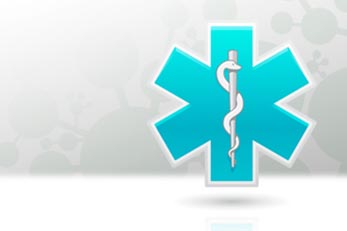Fraud, Waste, and Abuse Prevention

Definitions:
"Fraud" means an intentional deception or misrepresentation made by a person with the knowledge that the deception could result in some unauthorized benefit to himself or some other person. It includes any act that constitutes fraud under applicable Federal or State law.
"Waste" is health care spending that can be eliminated without reducing the quality of care.
The False Claims Act is a federal statute that covers fraud involving any federally funded contract or program, including the Medicare and Medicaid programs. The act establishes liability for any person who knowingly presents or causes to be presented a false or fraudulent claim to the U.S. government for payment.The term "knowing" is defined to mean that a person with respect to information:
• Has actual knowledge of falsity of information in the claim;
• Acts in deliberate ignorance of the truth or falsity of the information in a claim; or
• Acts in reckless disregard of the truth or falsity of the information in a claim.
Health care fraud is:
Examples of Fraud and Abuse
|
By a Member |
By a Provider |
|
Using someone else’s insurance card. |
False coding, altering records, or claims. |
| Altering or forging a prescription. | Balance billing by asking the patient to pay the difference between the discounted fees, negotiated fees, and the provider's usual and customary fees. |
|
Knowingly enrolling someone not eligible for coverage under their policy or group coverage. |
Billing for services not rendered or goods not provided. |
|
Providing misleading information on or omitting information from an application for health care coverage, or intentionally giving incorrect information to receive benefits. |
Billing separately for services that should be a single service. |
|
Altering the billed amount for services. |
Billing for services not medically necessary. |
|
Altering the service date. |
Overutilization: Medically unnecessary diagnostics, unnecessary durable medical equipment, unauthorized services, inappropriate procedure for diagnosis. |
• Do not give you Molina ID card or number to anyone except your doctor, clinic, hospital or other healthcare provider.
• Do not let anyone borrow your Molina ID card.
• Never lend your social security card to anyone.
• When you get a prescription make sure the number of the pills in the bottle matches the number on the label.
• Never change or add information on a prescription.
• If your Molina ID card is lost or stolen, report it to Molina immediately.
You may report suspected cases of fraud and abuse to Molina's Compliance Officer. You have the right to have your concerns reported anonymously to Molina, the South Carolina Office of the Attorney General’s Insurance Fraud Division, and/or United States Office of Inspector General. When reporting an issue, please provide as much information as possible. The more information provided the better the chance the situation will be successfully reviewed and resolved. Remember to include the following information when reporting suspected fraud or abuse:
- Nature of complaint
- The names of individuals and/or entity involved in suspected fraud and/or abuse including address, phone number, ID number and any other identifying information.
You may report fraud and abuse to Molina Healthcare through one of the following:
Telephone
The Molina Healthcare Alert Line is available 24/7. It can be reached at any time (day or night), over the weekend, or even on holidays.
Online
To report an issue online, visit: https://molinahealthcare.AlertLine.com.
Regular Mail
You may also report fraud, waste, and abuse to:


